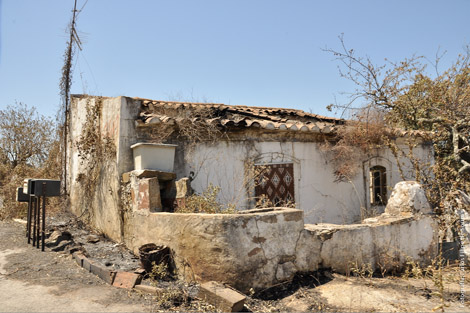 The Government will make the effort "which proves necessary" to meet all the financial needs linked to the recovery of first homes destroyed in the fires that affected São Brás de Alportel and Tavira last July.
The Government will make the effort "which proves necessary" to meet all the financial needs linked to the recovery of first homes destroyed in the fires that affected São Brás de Alportel and Tavira last July.
In the Local Social Development Contracts signed today, the amount allocated to each of the municipalities was 300 euros, but the text of the protocol stipulates the possibility of increasing the funds until "the objectives are fully achieved" in the contracts, that is, recover permanent dwellings that the fire has burned partially or totally.
This premise contained in the protocols signed today was added by the Secretary of State for Social Security and reaffirmed during the protocol session for signing the contracts, which took place this Monday in Faro. To the journalists, Marco António Costa assured that the necessary effort will be made, with the 300 thousand euros being just a basic amount.
According to the member of Government, the funds will be released as the process progresses and depending on the funds spent. Each of the Chambers, in articulation with the Social Security district delegation, now has the task of surveying the needs, drawing up the projects and launching the necessary tenders. In some cases, this means that work can start as early as September.
According to Jorge Botelho, in the municipality of Tavira there are six houses eligible for restoration, while in the municipality of São Brás there are 20 permanent dwellings whose restoration is part of this protocol. In this last county, two holiday homes were also destroyed, which do not have access to these funds.
The requirements to be able to benefit from these funds are, from the outset, the obligation for the house in question to be a first home, "whose losses are not covered by insurance or in the amount in which the insurances, if any, do not cover the losses" and cases in which people were left to live “in conditions of economic vulnerability”, according to Marco António Costa.


















Comments